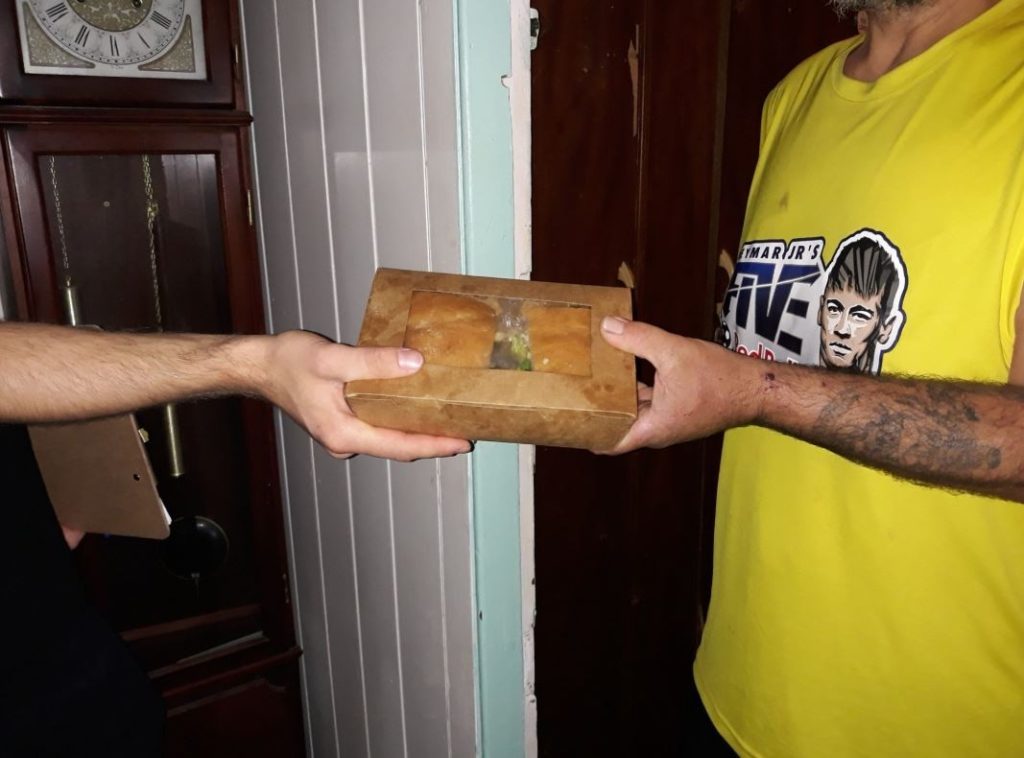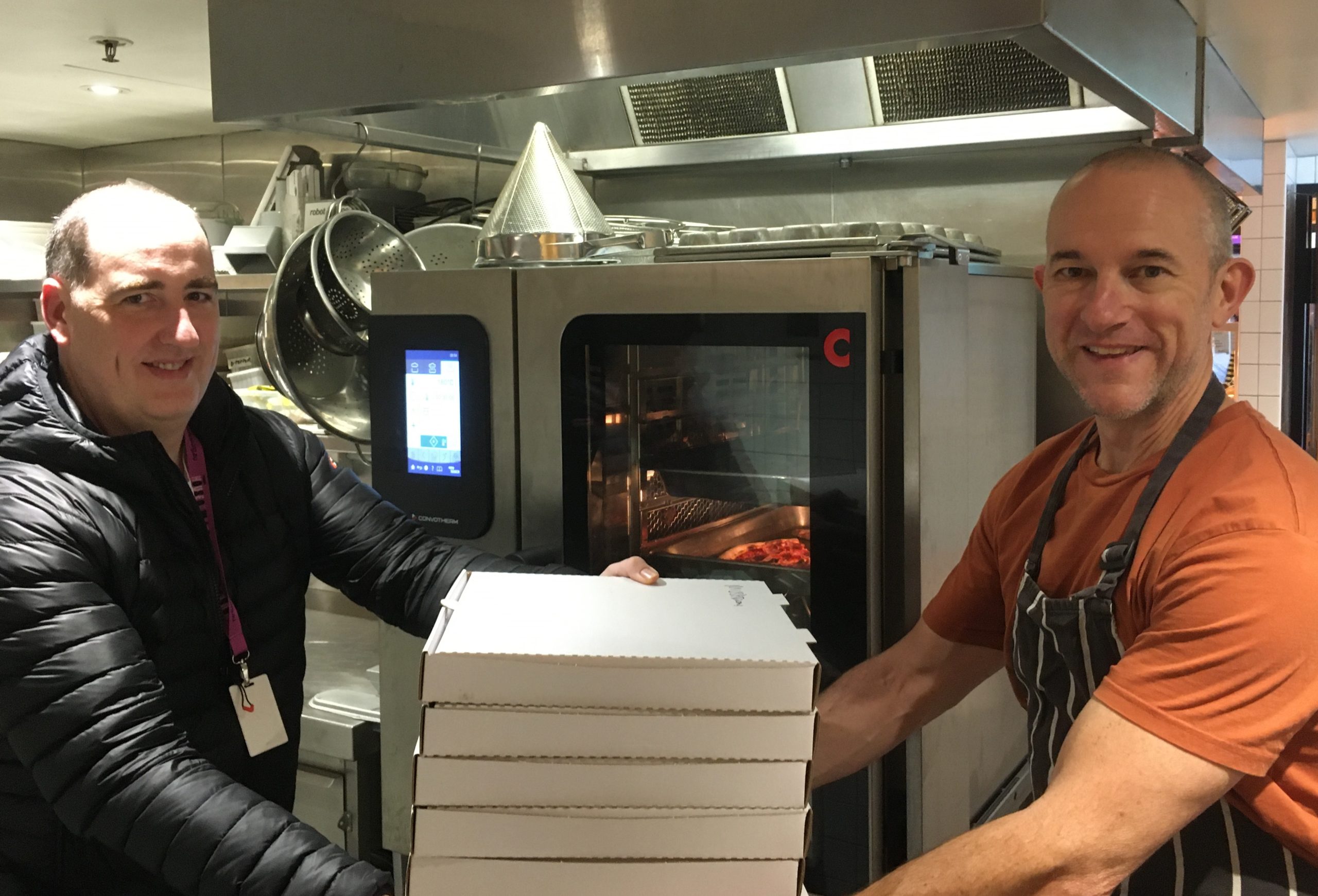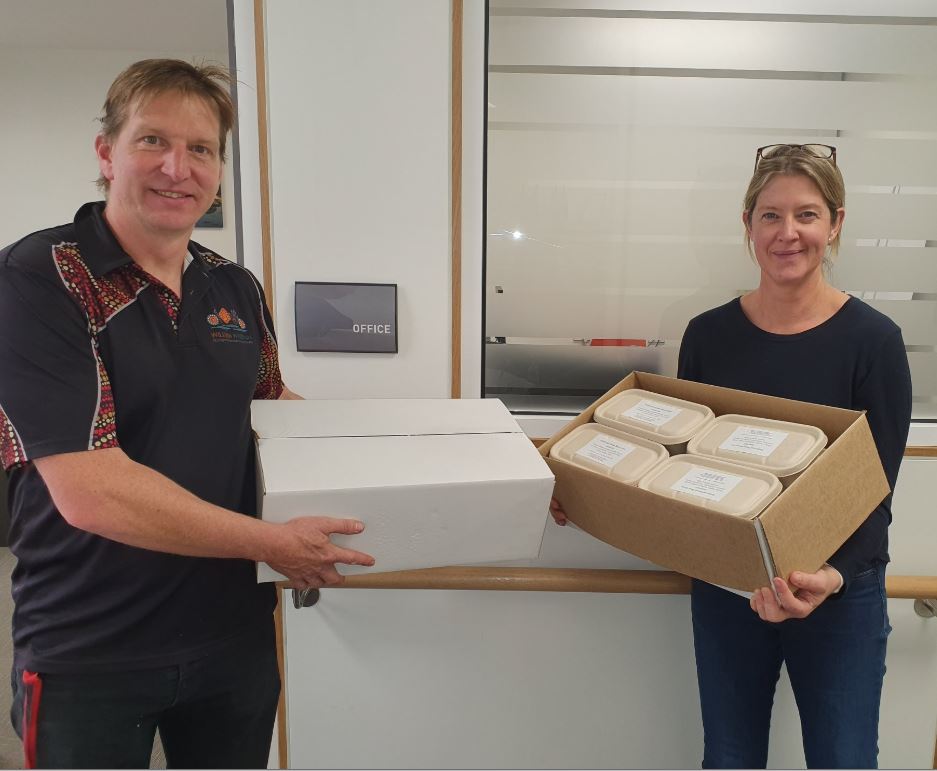
Back in March as the COVID-19 crisis loomed we reached out to our community partners to listen to their concerns and gauge how to support them best. Nearly all confirmed that food security was a major problem for their homeless and disadvantaged clients. As soon as lock down was announced charity meals programs shut due to social distancing regulations and older volunteers protecting their health. Our response to this urgent food security challenge was to make a number of food relief related grants including supporting FareShare, a long term partner, and we also moved quickly to establish the SmartMeals program.
As food programs shut there was increased demands on the food relief system, including people recently unemployed, and rough sleepers recently accommodated in hotels and motels who needed regular easy to eat meals and snacks. At the same time our restaurant supporters wanted to help the community and had workers who weren’t covered by Government programs such as Job Keeper and Job Seeker.
As Melanie Raymond Chair of Youth Projects said “What we didn’t know when the homeless were offered accommodation in hotels and motels, is that it didn’t come, necessarily, with food, cooking facilities or laundry facilities … The ‘stay in place’ order was difficult for people who were housed with only what they stood in, we had to scale up food relief services while many of its usual donation sources dried up.”
So, on Monday 30th March we fast tracked the launch of SmartMeals to have the dual impact of feeding vulnerable people while helping to keep hospitality workers employed at our partner cafes and restaurants. With community support we have been able to pilot and expand the SmartMeals program from an initial 3 to 10 charity partnerships, including three in NSW, two in QLD, five in VIC.
As we start Week 13 of the SmartMeals program we have to date delivered over 16,000 meals and are providing 390 meals per day to our ten charity partners.
“Receiving SmartMeals makes me feel full of love. Having it brought to my door with a ‘hi, how are you.. just checking in’, I really feel like I’m getting so much support. It might seem like a small act but you’re effectively changing the lives of people. When you guys walked in that first day I was blown away.”
– Lana, SmartMeals recipient.


“I was homeless, sleeping on the street. Sleeping rough. Having a healthy meal, having it delievered and made for you has made a big difference to the way I feel inside. I can feel it from my next bite. I’ve noticed a real difference through eating a healthy meal from you guys.”
– Ryan, SmartMeals recipient.
Why has food security been such a challenge during the COVID-19 pandemic?
Australia ranks among the most food secure nations in the world, and is in the top ten nations for food affordability and availability. However five million Australians already experienced food insecurity prior to the pandemic – that’s 815,000 people per month seeking some kind of food support from charities.
There are literally thousands of meals programs, food banks and community pantries running every day across Australia – even though we have had 28 years of continual economic growth. However these food programs are simply unable to address the core reason that too many people don’t have enough food — poverty – the mix of high cost of living and low income. Due to COVID-19 there are now millions more people on some form of Government assistance or in many cases have nothing at all. It is estimated that there are over 800,000 on temporary visa holders and most are without some form of income support.

Sean Kierce from Ladro delivers meals to St Mary’s House of Welcome
Previous food relief systems have been severely disrupted
Layer on top of the overstretched and under-funded food relief system, the massive disruption caused by the shut down of our society due to COVID-19. Many charities have closed their operations or are at best running at a limited capacity. Early on food delivery systems were also heavily disrupted combined with panic buying. Recently the ABC reported that a small charity, Foodshare in Shepparton (VIC), who normally receives 300kg of food only received only 10kg of food during the early weeks of the pandemic. They usually supply food to more than 100 local agencies, churches and community groups who then distribute the food to the vulnerable.
New jobless and others require support
Millions of people are out of work or getting fewer hours, and making ends meet is difficult. For many it’s the first time they’ve truly struggled to get food on the table for themselves and their family. They simply don’t have a buffer in their household budget to deal with the recent economic shock inflicted upon them. Food and emergency relief services are seeing a lot of overseas students, backpackers, temporary visa holders and refugees. There are many slipping through the gaps of the Government assistance package. By late April we saw the demand for food relief rise rapidly.
Australia’s largest food-relief organisation, Foodbank, says demand for help is at a record high, doubling in the past few weeks alone. At the same time, almost a fifth of charities who usually provide food relief are closed. A website called Ask Izzy, has also seen a spike in searches for food relief agencies through its App.

The team at Western Port Community Support receive meals from Port Phillip Estate
Will the need for meals continue now that things are getting back to normal?
StreetSmart has been involved in supporting and funding food security programs, big and small, for 16 years. One of our first grants was to a fledgling FareShare in 2004, we helped seed fund Second Bite and funded the first walk-in cool room for the ASRC food bank. We have seen continual growth in the number of people needing food relief, due to poverty. Demand is now going to increase rapidly and will be with us for a prolonged period.
We have seen an amazing response to the food security crisis in communities across Australia, many involving our friends and colleagues, some we have helped to fund now and previously. Organisations such as FareShare, Oz Harvest, Second Bite, STREAT, Community Grocer, St Patricks (Perth), ASRC, Coast Shelter and many restaurateurs and staff have stepped up and are meeting some of the needs. Neighbours have been helping neighbours. We applaud all of them, their staff, the volunteers and supporters. There are a lot of people struggling to make ends meet.
But let’s remember food banks and food relief programs are not a solution for deficiencies in government income support. We call on the Federal Government to develop meaningful policy solutions to reduce poverty, including keeping the new level of Job Seeker payment above previous levels.
How can you help right now
To date SmartMeals is filling a niche in the food relief system, working closely with charity partners to plug a gap at a local level. The program has been supported by a mix of individuals chipping in from $10 at a time, to much larger personal gifts from individuals and key philanthropic and corporate partners. We have been generously supported to date and have raised funds for the next 4 weeks (at current levels of meals) but, beyond that, we will be looking for further funding. We are asking the community to keep it going so that people can be supported through this difficult time…
“When you’re down and out like this, it’s tough. This food has been keeping me afloat during this particularly rough patch in my life.” SmartMeals recipient at Communify (Brisbane)
“If it wasn’t for these meals, I’d go hungry. I have no money & nowhere to cook food.” – SmartMeals recipient at St Mary’s House of Welcome
More about the program and how to donate see here
You can also write to your MP asking for JobSeeker to be maintained at current levels to enable people to live in dignity and effectively seek work if able.
Further Information on Hunger in Australia
Foodbank – Hunger in Australia
ABC News – Demand for Foodbank Doubles








